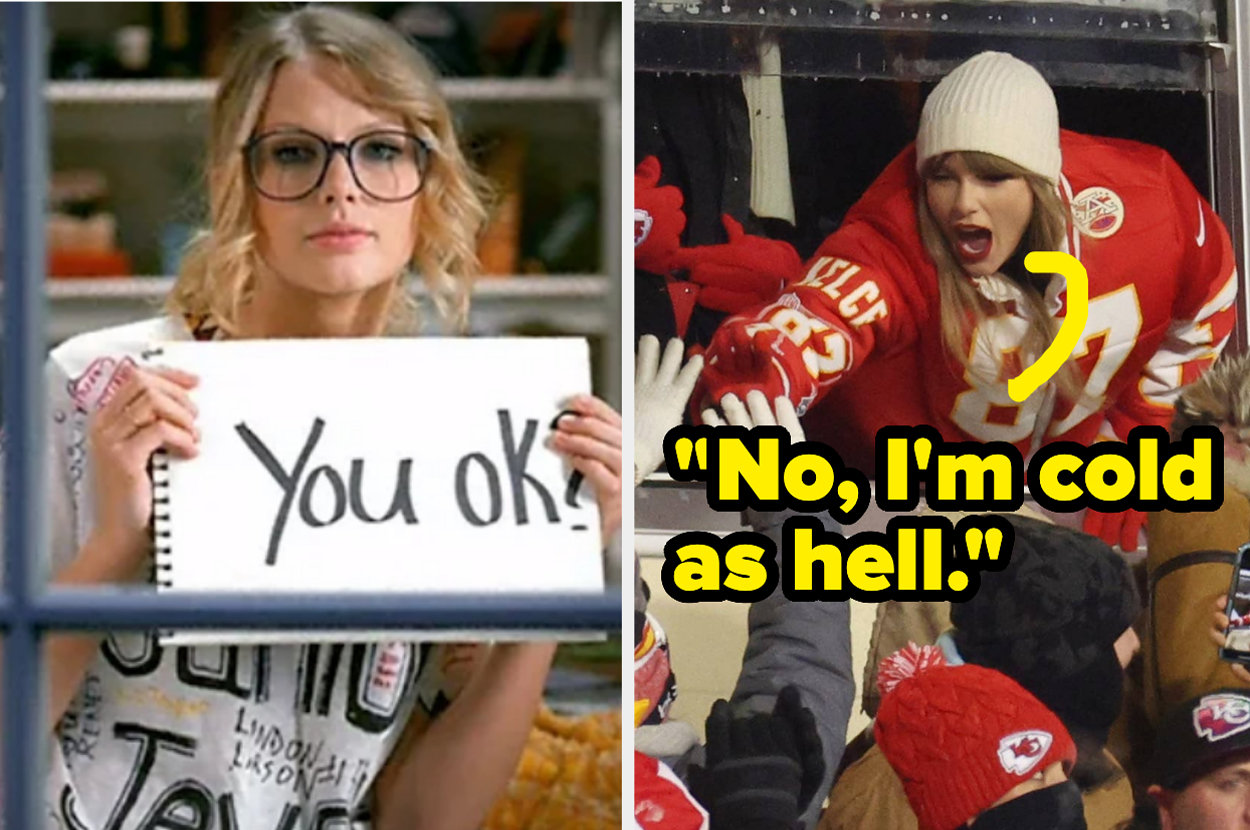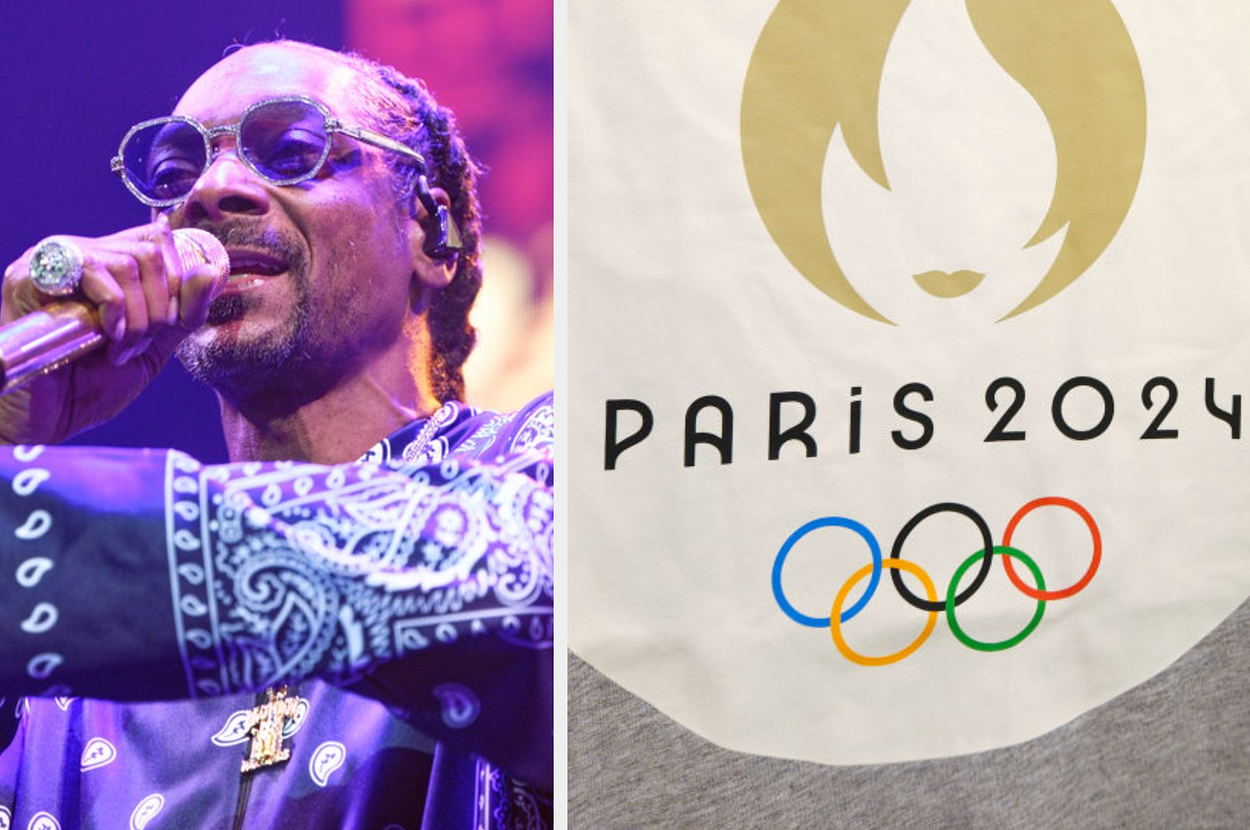Today I learned that backflips on ice are illegal.
I'm convinced that for every iconic Olympic triumph, there's an equally fascinating Olympic scandal out there.
While there are the big ones that everyone's heard of (looking at you, Tonya Harding and Nancy Kerrigan), I've been deep-diving into the scandals that aren't as widely talked about.
I'm talking illegal backflips, shady scoring, and disqualifications galore.
Here are 13 of the wildest, wackiest, and incredibly fascinating Winter Olympic scandals from the past century of competition:
1. 1924: The judges' hands were too cold to keep time properly.
George Rinhart / Corbis via Getty Images
The first-ever Winter Olympics, held in Chamonix, France, were plagued with controversy when a major time discrepancy gave the wrong speedskater the gold.
In the 1924 Games, officials used manual stopwatches to keep time during the speedskating competition. Because it was so cold out (I mean, they're called the Winter Olympics for a reason!), the judges' hands were freezing and they struggled to stop the timer at the correct times. The timing errors meant that American underdog Charles Jewtraw took home the gold.
Jewtraw later admitted to Sports Illustrated that he not only had never competed in a 500-meter race before winning the gold but also hadn't even trained for the Olympics.
2. 1928: Thawing ice denied an underdog speedskater the gold.
George Rinhart / Corbis via Getty Images
The 10,000-meter speedskating race at the 1928 Olympics in St. Moritz, Switzerland, was halted when the ice began rapidly thawing. At the point of interruption, American Irving Jaffee was leading the competition, upsetting Norwegian Bernt Evensen, who was the defending world champion.
A Norwegian referee ended up controversially canceling the entire competition. Many believed that Jaffee should have been awarded the gold, and the International Olympic Committee agreed, giving him the medal. The International Skating Union later reversed the decision and stripped Jaffee of his medal. For what it's worth, Evensen said he believed that Jaffee deserved his gold.
3. 1968: A shadowy figure interrupted an Alpine skiing event.
Getty Images
The Alpine skiing finals at the 1968 Games in Grenoble, France, had been clouded by thick fog. During the competition, Austria's Karl Schranz claimed that a mysterious man dressed in black jumped in front of him during his run, forcing him to come to an abrupt halt. He believed it was a French police officer or soldier who had been sent to sabotage him, paving the way for his French rival, Jean-Claude Killy, to nab the gold.
After three witnesses corroborated his story, Olympic officials allowed Schranz a rerun, during which he produced a gold medal–winning time. Two hours later, he was disqualified when it was uncovered that he had skipped over two gates during the run.
When asked if he skipped the gates, Schranz said he had been "hypnotized by the dark shadow [he] saw ahead. It is possible that for the moment, [he] missed a gate to avoid it."
4. 1968: East Germany's women's luge team was caught warming the luge.
Ullstein Bild / Ullstein Bild via Getty Images
Clearly, the 1968 Games in Grenoble were plagued by controversy. Right before the women's luge final, the East German luge team was accused of warming the metal blades of their luge. The team, which had been considered the favorite to take the gold, denied having any part in the illegal activity.
An Olympic judge took matters into his own hands and felt the team's metal runners, which were, in fact, warm. The team was immediately disqualified. East German officials began cursing out Olympic officials, and the women's team quickly left the competition site.
Italy ended up winning the gold and West Germany came in a close second, which probably didn't help with the political tensions in the area at the time.
5. 1972: Karl Schranz lied about being a professional athlete.
Imagno / Getty Images
If you're thinking, Hmmm, Karl Schranz? That name sounds kind of familiar, that's because you just read about another Schranz-related scandal. Yup, Schranz was the skier who saw the shadowy figure in the 1968 Winter Games.
During the 1972 Olympics in Sapporo, Japan, Schranz came under fire once again for lying about his amateur status. While Olympians today are free to compete professionally, the games were still amateur-only in the 1970s. Schranz was revealed to be a covertly professional athlete when an endorsement deal with Kneissl, a ski manufacturer, came to light. He was subsequently disqualified from the Olympics, but the controversy had a silver lining: It paved the way for major Olympic reform when it came to amateur status and term lengths of Olympic officials.
6. 1980: The US planned to turn the Lake Placid Olympic facilities into a prison after the games.
Ullstein Bild Dtl. / Ullstein Bild via Getty Images
The Olympics often face criticism for spending so much money on facilities that are later abandoned. Once the United States was awarded its bid for the 1980 Olympics to be held in Lake Placid, lawmakers were determined not to allow the facilities to fall into disrepair once the games were over. Their solution? Build a facility that could function as a prison after the Olympics. They even based the plans on a prison in Memphis.
This decision proved to be incredibly controversial: A group called Stop the Olympic Prison launched, but despite their efforts, the plans moved forward. Rooms for the athletes resembled prison cells with bunk beds and metal doors with small peepholes. Some lucked out with rooms boasting small windows. Months after the games concluded, the facilities reopened as FCI Ray Brook, a medium-security men's prison that's still in operation today.
7. 1998: A snowboarder was stripped of his medal after testing positive for marijuana.
Nathan Bilow / Getty Images
You might recall the controversy surrounding Sha'Carri Richardson's disqualification for testing positive for marijuana before the postponed 2020 Tokyo Olympics, but that wasn't the first time it has hampered the games.
Snowboarding made its Olympic debut at the 1998 Games in Nagano, Japan. The first gold medalist, Ross Rebagliati, failed a routine drug test after his history-making performance. When it was revealed that he had tested positive for marijuana, Rebagliati was stripped of the medal and arrested. Rebagliati was eventually reawarded the medal after the court ruled that marijuana was not on the banned substances list.
8. 1998: Surya Bonaly lost points for doing a backflip on the ice.
Eric Feferberg / AFP via Getty Images
At the 1998 Olympics in Nagano, Japan, French ice-skater Surya Bonaly planned to compete despite suffering from an Achilles injury that affected many of the planned skills in her routine. After Bonaly finished the short-program portion of competition in sixth place, she knew she wouldn't make it to the podium. In a last-ditch effort, Bonaly decided to perform her signature move: a backflip on ice, landing on one blade. The problem? Backflips had been banned from competition since 1976 after being deemed too dangerous.
"I wanted to do something to please the crowd, not the judges," she later said. "The judges are not pleased no matter what I do, and I knew I couldn't go forward anyway because everybody was skating so good."
Bonaly received point deductions for pulling off the trick and retired from ice-skating soon after. She is still the only skater to land on one foot after executing a backflip.
9. 1998: Ice dancing judges agreed upon winners before the competition even began.
Clive Brunskill / Getty Images
Before competitors even took to the ice at the 1998 Games in Nagano, Japan, Jean Senft, a Canadian judge, secretly recorded a conversation with Ukrainian judge Yuri Balkov about predetermining the winners. Balkov had allegedly been pestering Senft to score the Ukrainian skaters highly, and in return, he would score the Canadian team accordingly. Senft had previously gone to officials about being pressured by Balkov, but her complaints had been ignored. Fed up by the unfair competition, Senft recorded the conversation as a final straw.
Both teams failed to medal, although many believed that the Canadian routine was worthy of at least the bronze. Once the tapes came to light, Balkov received a one-year suspension, while Senft was banned for six months. "For heaven's sakes, if I were part of it, why would I bring it forward?" she told Time.
The scandal caused Dick Pound, a top Olympic official, to consider removing ice dancing from the Olympics until major judging reforms were made. The sport is still part of the Winter Games.
10. 2002: A skier switched his citizenship and took home three gold medals, only to be caught doping.
Alexander Hassenstein / Bongarts / Getty Images
Johann Mühlegg, a cross-country skier who is originally a German citizen, caused controversy when he decided to switch his citizenship to Spain, thus taking his talents to Spain. The move wasn't shocking, considering that he had previously said that the German coaches were damaging him spiritually. He was eventually removed from the German team.
At the 2002 Salt Lake City Games, his first as a Spanish citizen, Mühlegg won three gold medals. He later tested positive for darbepoetin, a drug that boosts red blood cell counts. While the drug wasn't banned at the time (it had just been recently developed), Mühlegg, along with two other skiers who had tested positive, was disqualified from the games and stripped of his medals. Mühlegg's career ended shortly after the controversy.
11. 2002: Two teams won the gold after a collusion attempt.
Getty Images
At the 2002 Salt Lake City Games, ice judges once again found themselves in the midst of major controversy.
The pairs figure skating competition came down to the Russian and Canadian teams, with Russia edging out Canada for the gold. Marie-Reine Le Gougne, a French judge, came forward, telling officials that she had been pressured by the French Ice Sports Federation to put the Russians first.
"I was almost certain that I was the one who would award the Olympic title. What I feared would happen really did," Le Gougne told Reuters. After investigating the situation, the Canadian team was awarded gold medals and Le Gougne was suspended from the sport for three years and banned from the 2006 Olympic Games.
12. 2010: The Canadian women's hockey team came under fire for celebrating their win on the ice.
Alex Livesey / Getty Images
Canada's women's hockey team won their third-straight gold at the 2010 Vancouver Games. After being told the rink was empty, they headed back out on the ice with champagne and cigars to celebrate the win. Turns out the rink wasn't totally empty, and the team came under fire for the celebration.
Some of the players who were caught drinking were underage, while others were angry that the team members were smoking cigars in an Olympic facility. No formal punishment was brought against the team.
"These kids have worked like dogs for years and months, and the pressure is off," Olympic official Dick Pound told CBC Sports. "They had a huge game and a great win. Hey, let them have some fun."
13. 2014: Russia's state-sponsored doping of over 1,000 athletes was revealed after they won 33 medals in Sochi.
Andrej Isakovic / AFP via Getty Images
After the 2014 Sochi Olympics, it was revealed that over 1,000 Russian athletes were involved in the biggest doping scandal in Olympic history.
The New York Times reported that Russia sponsored a “state-run doping program, meticulously planned for years to ensure dominance at the Games.” Russia took home 33 medals, 13 of them gold, during the games. The plan was hatched after the country faced its worst Olympic finish since the collapse of the Soviet Union in the 2010 Vancouver Games.
As a result, Russia was given a four-year Olympic ban, although many Russian athletes were able to compete independently in the 2018 Winter Olympics. The country was stripped of 10 medals and was unseated as the top medal winner at the games.

 3 years ago
640
3 years ago
640










 English (US)
English (US)